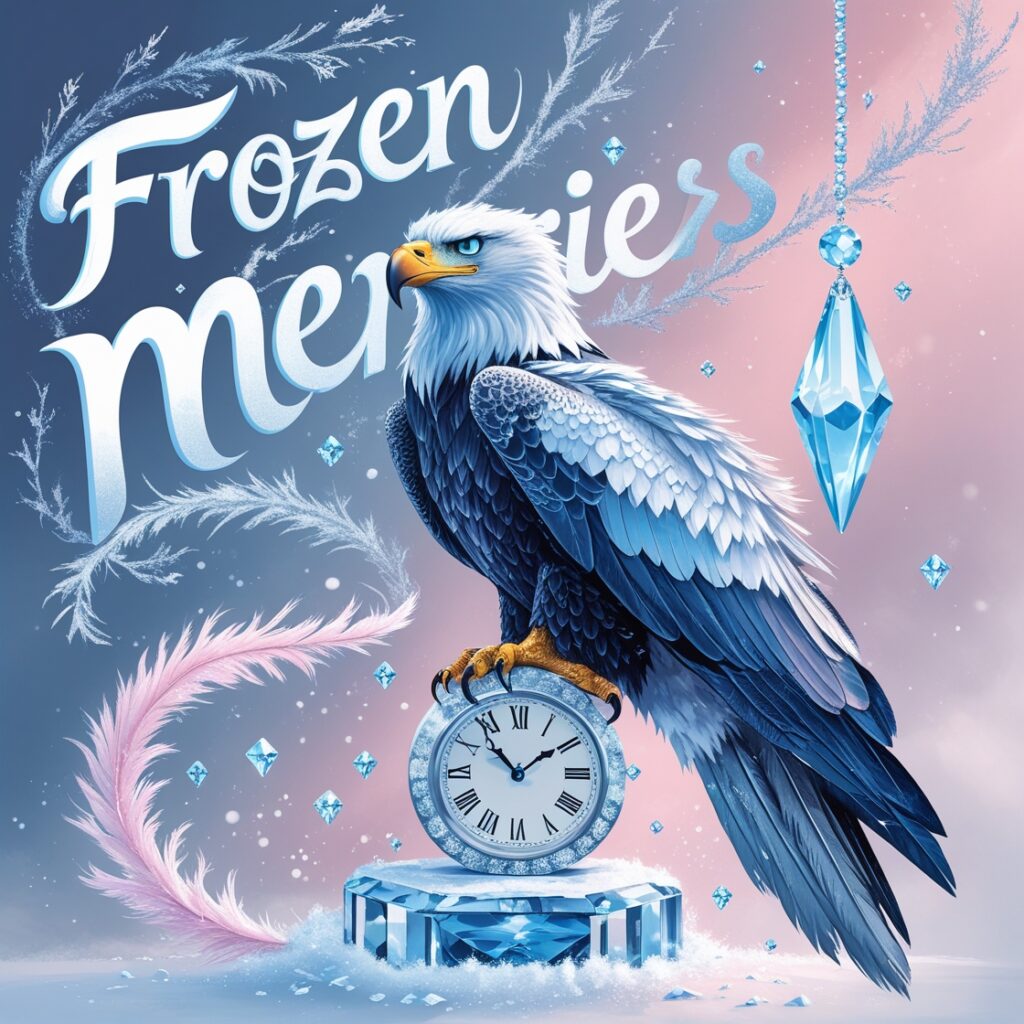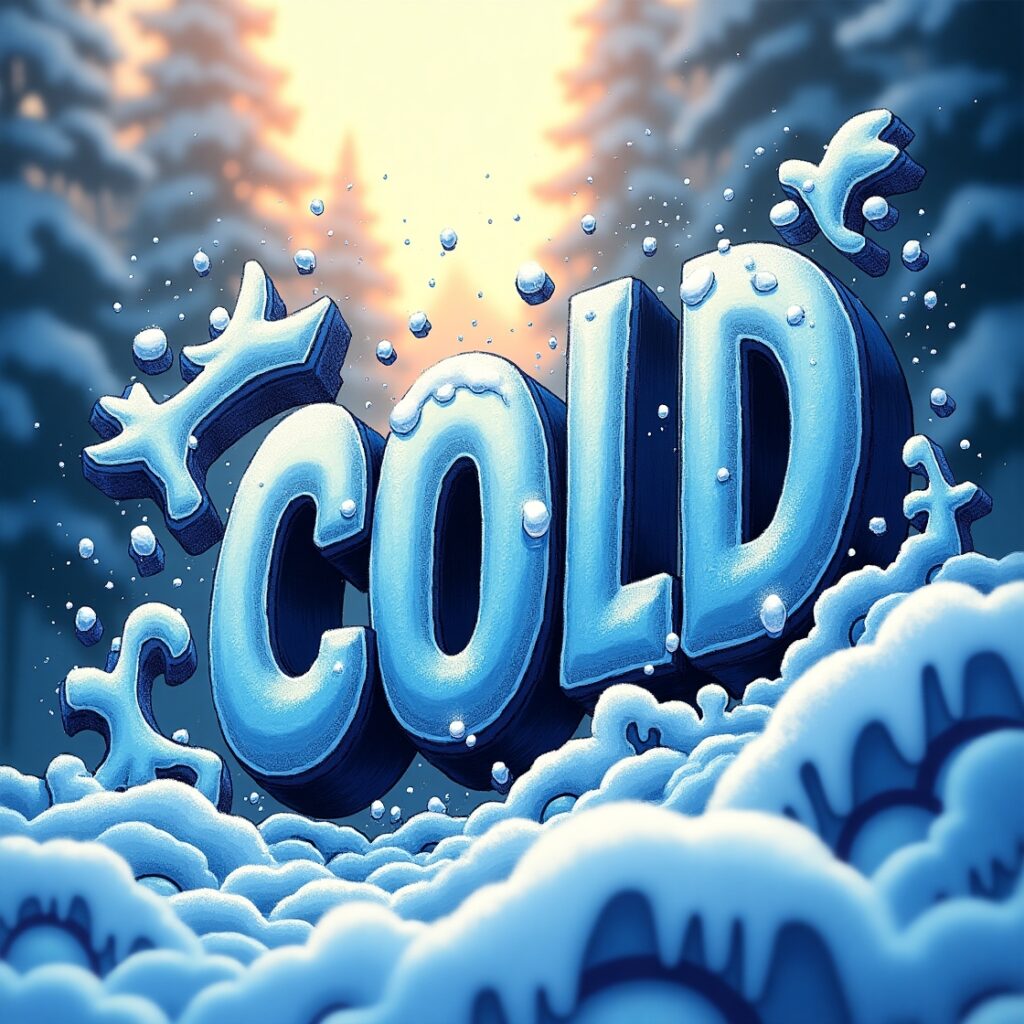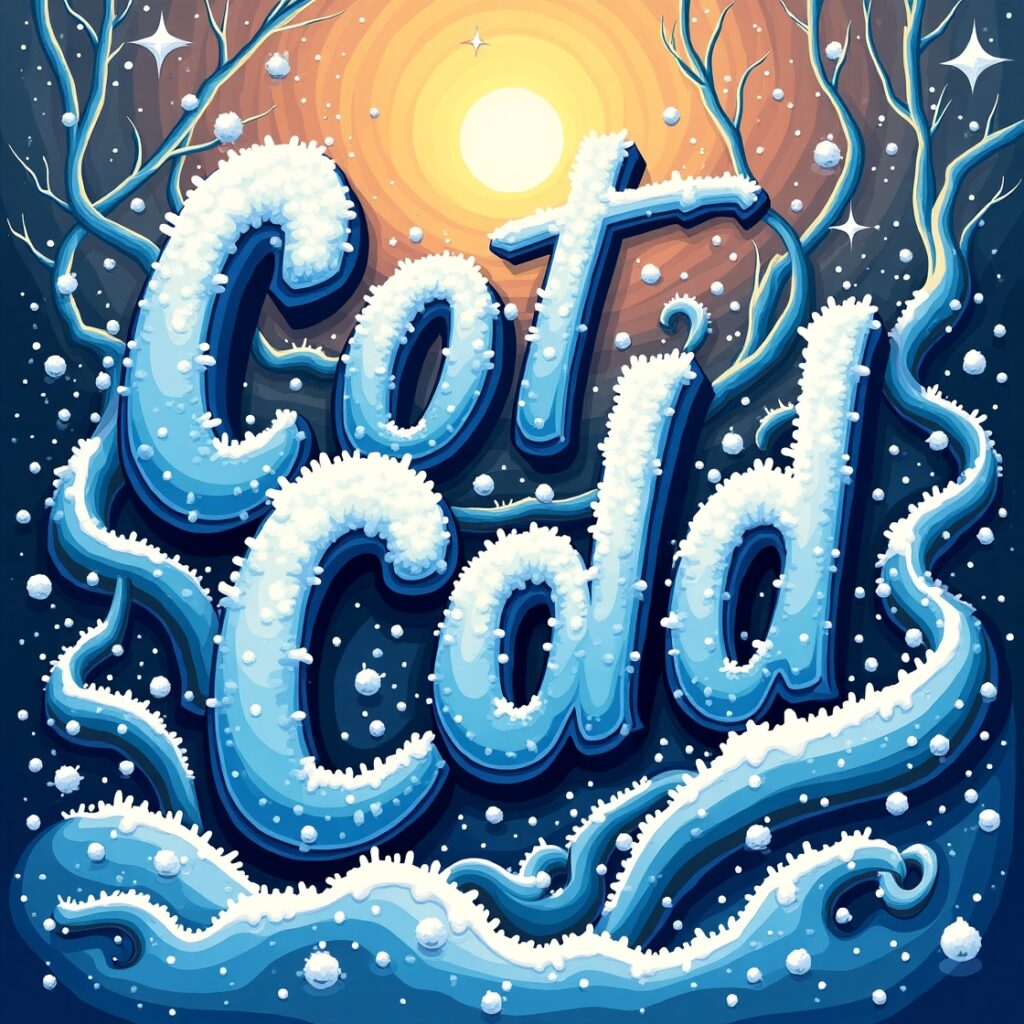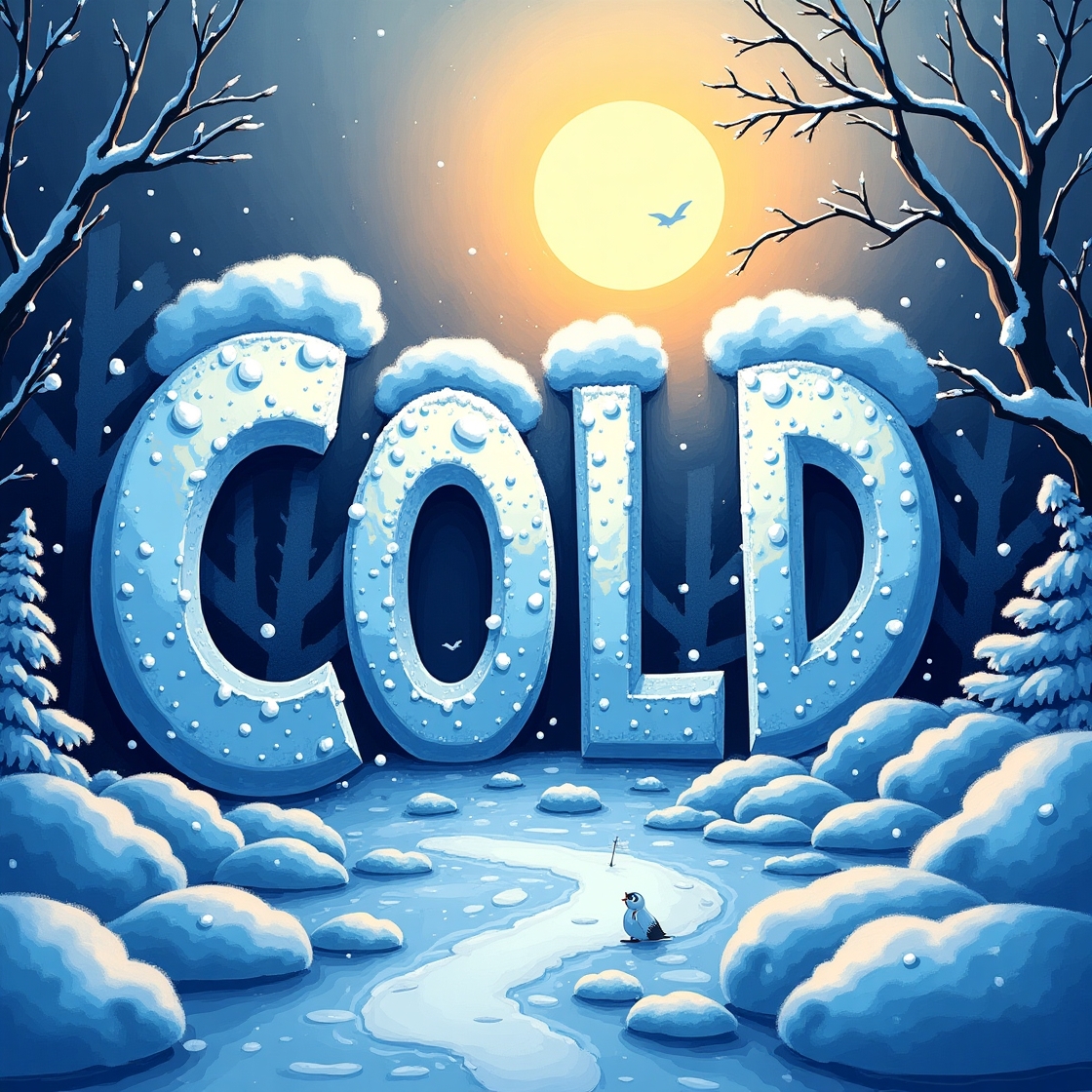Metaphors for Cold weather has a completely unique manner of creating itself felt—no longer simply on our skin however in our language. To describe the biting chill and wintry weather’s presence, we regularly turn to metaphors—creative expressions that cross past literal that means to paint a vivid photograph. These figurative terms permit us to emotionally connect to the season. Imagine the wind now not clearly blowing, but “whispering the secrets of winter”, or a freezing day in which “icy fingers creep via the air.” Such imagery offers lifestyles to the bloodless and transforms it right into a storyteller.
In this text, we’ll discover quite a few compelling metaphors that mirror the revel in of cold climate—no longer just the physical sensation, but the emotional tone it could bring. From the hush of snowfall to the pointy sting of frost, each metaphor gives a sparkling perspective on how we experience, endure, and interpret the bloodless.
So, clutch your headband and permit’s step into a global wherein language brings the wintry weather kick back to life.
1. “Cold as Ice”
Meaning: This traditional metaphor compares frigid weather directly to the kick back of stable ice—sharp, harsh, and unmistakable.
Example: The moment I stepped out of doors, the air gripped my pores and skin—bloodless as ice, making even my eyelashes stiffen inside the breeze.
2. “Absolutely Freezing”
Meaning: A sturdy metaphor that exaggerates the sensation of bloodless so excessive it seems to freeze the entirety in its path.
Example: The heater had stopped running overnight, and by means of morning, it felt clearly freezing—my breath hung within the air like smoke.
3. “Colder Than a Witch’s Curse”
Meaning: A darkly funny metaphor, imagining the relax as more ruthless than a legendary witch’s spell.
Example: That wind wasn’t just cold—it changed into less warm than a witch’s curse, cutting through my coat adore it wasn’t even there.
4. “Colder Than a Brass Statue in Winter”
Meaning: Compares the temperature to frozen steel—specially brass, recognized to feel even less warm to the touch.
Example: I regretted now not carrying gloves the second I grabbed the gate—it was less warm than a brass statue in wintry weather.
5. “Colder Than the Inside of a Crypt”
Meaning: This metaphor evokes imagery of the deep, unchanging chill determined underground or in tombs.
Example: The basement had no warmness, and the air felt less warm than the inside of a crypt—nonetheless, silent, and unforgiving.
6. “Colder Than a Miner’s Shadow”
Meaning: Refers to the intense bloodless faced with the aid of folks who work underground in harsh, damp situations.

Example: Even wrapped in layers, the mountain wind made me feel less warm than a miner’s shadow working at dawn.
See Also : 30 Powerful Metaphors for Crying
7. “Colder Than a Polar Bear’s Whiskers”
Meaning: A lighthearted metaphor that faucets into the frozen international of the Arctic, where even a polar undergo shivers.
Example: That early morning hike? It changed into chillier than a polar undergo’s whiskers—my cheeks went numb earlier than we reached the trailhead.
8. “Colder Than a Forgotten Hug”
Meaning: This poetic metaphor links emotional coldness with bodily relax, developing a vibrant emotional connection.
Example: The room was chillier than a forgotten hug, silent and uninviting notwithstanding the sparkle of the fireplace.
9. “Colder Than a Fisherman’s Boots”
Meaning: Inspired via the icy environments confronted by means of those running on water during iciness, often soaked and uncovered.
Example: After shoveling snow for an hour, my ft had been chillier than a fisherman’s boots at sea.
10. “Colder Than a Loan Officer’s Smile”
Meaning: A satirical metaphor poking fun at the perceived emotional detachment in monetary or formal settings.
Example: Even with the solar out, the breeze made it colder than a loan officer’s smile—sharp, dry, and some distance from comforting.
11. Winter as a Cozy Cabin
Meaning: Represents a place of safety, consolation, and safe haven from the harshness of the bloodless.
Example: His small home, full of warm temperature and laughter, felt like a cushty cabin in the coronary heart of winter, defensive his kids from the bitter winds out of doors.
12. Winter as a Blanket of Snow
Meaning: Suggests a gentle, shielding layer that lightly covers and preserves the whole thing it touches.
Example: When he stepped out of doors, the sector appeared hushed below a blanket of snow, wrapping the landscape in peaceful stillness.

13. Winter’s Lullaby
Meaning: Symbolizes the calming and tranquil effect of lightly falling snow.
Example: The quiet go together with the drift of snowflakes outdoor the window executed wintry weather’s lullaby, soothing the bustling metropolis into restful silence.
14. Winter due to the fact the Keeper of Secrets
Meaning: Implies that wintry climate conceals nature’s mysteries underneath its icy floor.
Example: As she wandered thru the frost-covered wooded place, it felt as despite the fact that the land had become a keeper of secrets and techniques and techniques and strategies and techniques, whispering historical stories through the wind.
15. Winter as a Warm Hug
Meaning: Portrays wintry weather as all of sudden comforting, like a loving embrace amid the bloodless.
Example: Despite the howling wind, his thick coat and heat cocoa made him experience like winter have become a warmness hug, gentle and still.
16. The Snow Monarch
Meaning: Describes winter as a regal force, ruling over the landscape with serene authority.
Example: The mountain peaks wore coats of white, status tall below a grey sky—the snow monarch had claimed its throne over again.
17. The Ice Librarian
Meaning: Envisions winter as a preserver of time, storing recollections like frozen books.
Example: Each icicle hanging from the rooftop gave the look of a web page from the ice librarian’s archive, shooting fleeting moments in glistening detail.
18. The Frost Giant’s Footsteps
Meaning: Refers to the effective and lasting presence of iciness’s bloodless, leaving in the back of a visible mark.
Example: Every frozen puddle in the garden appeared to echo the frost large’s footsteps, a reminder of iciness’s unrelenting march.
19. Winter as a Snow-Clad Summit
Meaning: Compares wintry weather to a majestic mountain, inviting task and awe.

Example: The snow-covered hills gleamed in the daylight, and the journey felt like mountaineering a snow-clad summit, urging us to rise above and persevere.
20. Winter as a Frozen Tundra
Meaning: Highlights the stark, inhospitable nature of a winter panorama—bloodless, barren, and nevertheless.
Example: With each gust of icy wind, the city transformed into a frozen tundra, wherein breath grew to become to vapor and silence reigned.
21. Cold Like a Snowman’s Carrot Nose
Meaning: Conveys the crisp, numbing sensation of sour cold, likened to the frosty carrot used as a snowman’s nostril.
Example: The icy gust hit my face the instant I stepped outdoor—it turned into as bloodless as a snowman’s carrot nose, stiff and unforgiving.
22. Cold Like a Polar Vortex
Meaning: Reflects extreme, risky bloodless just like the bone-chilling air masses of the polar vortex.
Example: As temperatures dropped into the negatives, the complete metropolis felt as bloodless as a polar vortex, paralyzing existence and final doors anywhere.
23. Cold Like a Block of Ice
Meaning: Highlights a static, solid, and intensely bloodless circumstance, similar to frozen blocks of ice.
Example: The subway bench become as cold as a block of ice, sending a pointy relax thru me the instant I sat down.
24. Cold Like a Refrigerator
Meaning: Suggests a mildly managed sit back, but nonetheless distinctly bloodless—mainly indoors.
Example: The meeting room became as bloodless as a fridge, making me want I’d delivered a headscarf along with my notes.
25. Cold Like a Winter’s Night
Meaning: Evokes the quiet but penetrating cold that regularly accompanies the darkness of a mid-iciness evening.
Example: The abandoned streets below the moonlight had been as bloodless as a wintry weather’s night time, nonetheless and soul-stirring.
26. Cold Like Frostbitten Toes
Meaning: Expresses a totally non-public, painful kind of bloodless that sinks deep into the body.
Example: I forgot my boots, and after taking walks thru the snow, my feet felt as bloodless as frostbitten feet, numb and aching.
27. Cold Like a Forgotten Freezer Meal
Meaning: Describes bloodless that’s overlooked however deeply embedded, like an icy meal left too long in the freezer.
Example: The garage felt as bloodless as a forgotten freezer meal, untouched and buried underneath layers of nevertheless air.
28. Cold Like the Far Side of the Moon
Meaning: Refers to an unreachable, alien sort of bloodless—barren and deeply distant.
Example: That mountain wind became as bloodless because the a ways facet of the moon, sharp, odd, and eerily quiet.
29. Cold Like a Museum Hall at Night
Meaning: Captures a quiet, formal kick back—impersonal, but distinct, like the sterile air of a closed museum.
Example: The abandoned library in iciness felt as bloodless as a museum corridor at night time, pristine and utterly nevertheless.
30. Cold Like Steel Left in Snow
Meaning: Highlights an unforgiving, sharp-edged bloodless that stings like metal uncovered to the elements.
Example: The shovel’s handle changed into as cold as steel left in snow, impossible to grip without gloves.
MCQS
1. What is the primary cause of the use of metaphors to explain bloodless climate?
A. To offer scientific reasons
B. To emotionally join and vividly specific the feeling of bloodless
C. To provide climate forecasts
D. To describe the geography of bloodless places
Answer: B. To emotionally join and vividly specific the feeling of cold
2. What does the metaphor “cold as ice” propose?
A. The temperature is comfortable
B. The weather feels refreshing.
C. The cold is intense and physically sharp
D. The weather is pleasant and breezy
Answer: C. The cold is intense and physically sharp
3. The phrase “colder than a witch’s curse” primarily adds which tone to the metaphor?
A. Humorous and ominous
B. Joyful and lighthearted
C. Neutral and factual
D. Romantic and soft
Answer: A. Humorous and ominous
4. “Winter as a cozy cabin” best represents which of the following ideas?
A. The destruction caused by winter
B. Nature’s freezing danger
C. Warmth, protection, and emotional comfort
D. A cold area with out a warmness
Answer: C. Warmth, safety, and emotional consolation
5. The metaphor “frost giant’s footsteps” implies:
A. A light and temporary winter chill
B. An emotional memory from childhood
C. A powerful and lasting winter impact
D. A musical experience in the snow
Answer: C. A powerful and lasting winter impact
6. In “winter as a blanket of snow,” snow is imagined as:
A. A threat to wildlife
B. A destructive force
C. A protective and peaceful covering
D. A form of pollution
Answer: C. A protective and peaceful covering
7. What does “bloodless like a snowman’s carrot nostril” maximum probably mean?
A. Wet and rainy situations
B. A numbing, crisp kind of cold
C. Warmth in the air
D. The beginning of spring
Answer: B. A numbing, crisp kind of cold
8. “Colder than a loan officer’s smile” is an example of which type of metaphor?
A. Inspirational
B. Satirical and ironic
C. Romantic
D. Biological
Answer: B. Satirical and ironic
9. What emotional tone is created by the metaphor “colder than a forgotten hug”?
A. Nostalgic and tender
B. Angry and fierce
C. Joyful and carefree
D. Humorous and absurd
Answer: A. Nostalgic and tender
10. “The snow monarch” portrays winter as:
A. A lazy figure
B. A kind child
C. A regal, controlling presence
D. A mysterious traveler
Answer: C. A regal, controlling presence
11. The metaphor “wintry weather’s lullaby” appeals to which human experience?
A. Taste
B. Smell
C. Hearing
D. Touch
Answer: C. Hearing
12. What is emphasized with the aid of the metaphor “cold like a block of ice”?
A. Stillness and deep, solid chill
B. Gentle snowfall
C. Refreshing breeze
D. Festive holiday joy
Answer: A. Stillness and deep, solid chill
13. In “the ice librarian,” winter is imagined as:
A. A teacher of children
B. A preserver of memories and knowledge
C. A baker in a cold kitchen
D. A lonely musician
Answer: B. A keeper of frozen knowledge and memories
14. What does “cold like steel left in snow” convey?
A. A beautiful winter scene
B. A soft, fluffy blizzard
C. The cold has a steel-sharp pain.
D. The give up of winter
Answer: C. The cold has a steel-sharp pain.
15. “Colder than a polar undergo’s whiskers” maximum possibly shows:
A. A slight breeze
B. A warm, snowy evening
C. An extreme, biting cold in arctic conditions
D. A dry desert chill
Answer: C. An extreme, biting cold in arctic conditions
Summary
This article explores how the harshness and emotional resonance of bloodless weather are vividly captured through using creative metaphors. Rather than describing wintry weather in plain terms, the writer showcases 30 wealthy metaphors that personify and dramatize the experience of bloodless. These expressions help readers feel the sit back now not simply physically, however emotionally and imaginatively.
From sharp comparisons like “bloodless as ice” and “colder than a witch’s curse” to poetic imagery like “iciness’s lullaby” and “the ice librarian,” each metaphor serves to deliver wintry weather to lifestyles in precise methods. Some metaphors evoke humor and satire, at the same time as others spotlight the stark beauty, isolation, or consolation related to cold climate. By mixing emotional undertones with bodily sensations, those metaphors deepen our connection to the season.
The article now not only gives colourful language however moreover encourages readers to reflect on how winter shapes mood, memory, and belief—turning the sit back of the air into a wealthy linguistic enjoy.
Read More About Metaphor At Cento magzine

